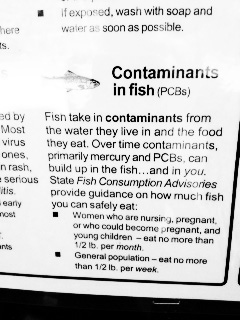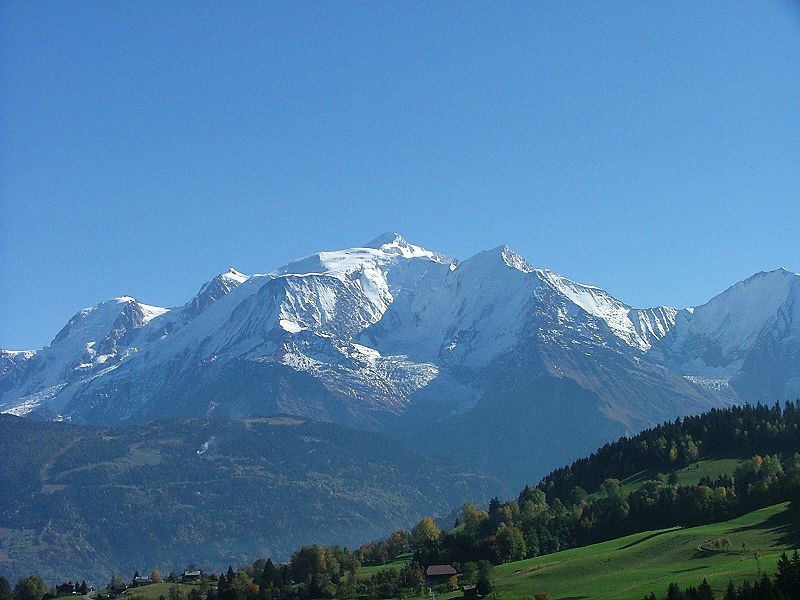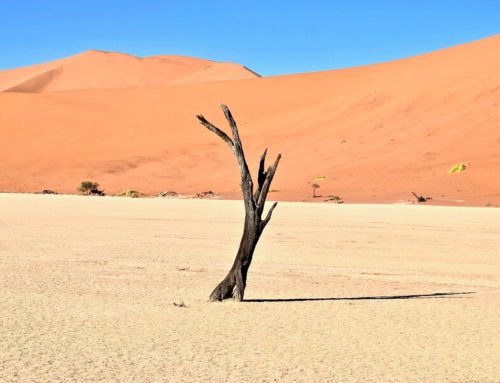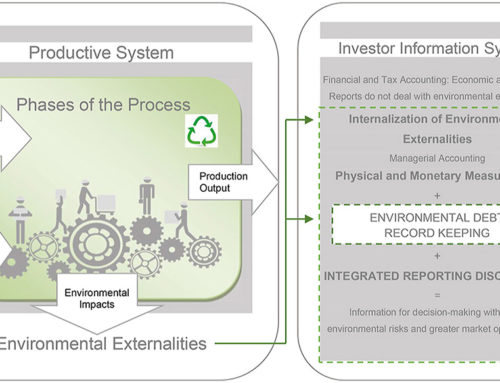First published in the Huffington Post, May 16, 2013
Sorry if I put this ear-tickling Rogers and Hammerstein song into your head today, but as you’re now stuck singing it all day, you might as well listen to the lyrics. The alpine mountains that go so well with the song’s swelling orchestrations are in retreat. In Glacier National Park in the United States, there were 150 glaciers at the turn of the 20th century. Now, there are only 26, and those are shrinking rapidly. The same is happening for Maria von Trapp’s beloved Austrian Alps. This was almost unimaginable a generation ago and would have sounded preposterous in 1959. Now, when we can well imagine, no — witness, the impacts of climate change, we still act as though our actions have no impact.
I spent a beautiful day in the Delaware Water Gap area last week. It’s amazing how close this breathtaking region is to NYC. But when I saw the sign above about polluted fish my delight was truly deflated. This park and sanctuary does not protect the nature within its boundaries. No national park classification prevents pollution from spoiling its air, land and sea.
 You can’t eat the fish in an area famous for great fishing spots and if this fish is not good for us to eat, imagine the experience for the fish themselves, as well as the effects this contamination has on the rest of the critters that need the fish for their diets, and the rest of the ecosystem of which the fish is a central part. In 1959, when The Sound of Music hit Broadway and three years before Rachel Carson published Silent Spring, it would have been astounding to imagine that one couldn’t eat fish in rural streams because of pollution — except perhaps in coal or manufacturing country where the pollution was visible and palpable. Because we didn’t quite understand then that pollution has no boundaries — neither in time nor in space. But now we know.
You can’t eat the fish in an area famous for great fishing spots and if this fish is not good for us to eat, imagine the experience for the fish themselves, as well as the effects this contamination has on the rest of the critters that need the fish for their diets, and the rest of the ecosystem of which the fish is a central part. In 1959, when The Sound of Music hit Broadway and three years before Rachel Carson published Silent Spring, it would have been astounding to imagine that one couldn’t eat fish in rural streams because of pollution — except perhaps in coal or manufacturing country where the pollution was visible and palpable. Because we didn’t quite understand then that pollution has no boundaries — neither in time nor in space. But now we know.
These signals should put us into Defcon 2. If we do not re-calibrate our economic system with wartime urgency, we will surrender the fate of our ecosystem to our own hubris. More like Götterdämmerung, the apocalyptic Wagnerian opera, than a Broadway musical.
Three principles should guide 21st century commerce:
- Pollution can no longer be free.
- The long term must govern all business and accounting rules and standards.
- Government must incentivize clean technology and penalize destructive practices.
Right now, while the hills are still alive, we must create the common sense economy for the 21st century. Several groups, like the Global Reporting Initiative, are looking to change business rules and they will need political will to move this mountain. Despite most people’s aversion, fluency in business and government accounting will be one of the most potent movement-building skills for the next generation — connecting the return on investment of business with the survival of the natural world.





